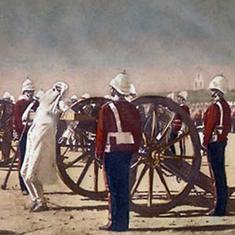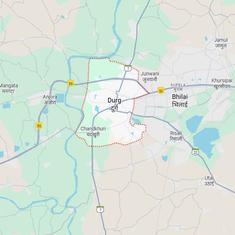December 29, 1981. A cold wave grips Calcutta.
The Sen family wakes up to find the kitchen door locked from inside. As the door remains closed, the casual air slowly gives way to rising tension, and then full-blown panic. When, with the help of the landlord’s son, the door is forced upon, the dead body of their domestic help, Palan, a minor, is discovered.
A doctor is called in. The cops duly arrive. Curious neighbours congregate on balconies, on the road. Already on the scene, however, is PI Sen, fresh from the success of his investigations into a missing middle-class working woman. Dressed in his trademark kurta-pyjamas, Sen is an ex-medical-representative who has the reputation of being a rabble-rouser, and is now, disconcertingly for some, morphing into somewhat of a field anthropologist. With him is his loyal and able Watson, KK, armed with his fluid camera and a generous supply of cigarettes.
This is a classic locked-room mystery. Who, or what, killed the child? There are several suspects.
Was it the apathy of the Sens (note the surname), Anjan and Mamata, the youngish, middle-class working couple with a pampered child not much older than the dead boy, who could have easily proffered Palan one of their mattresses and the warmth of the living room instead of letting him languish in the refuge area under the ground-floor staircase?
Or was it the carelessness, and tight-fistedness, of the landlord who had not kept the provision for even a single ventilator in the kitchen?
And can their overly-sympathetic neighbour Sreela, who had lent the deceased money to go and watch a late-night film show in this crazy weather, be partly to blame? (A brief digression: What film did Palan, a representative of the lumpen proletariat, watch? We are not told. One merely assumes PI Sen would not have approved of it.)
Over the next couple of days, PI Sen assiduously follows all leads. But he comes up with no clear answers. Everyone is culpable, he concludes, and so everyone is off the hook. The case is closed.
But some questions rear their head. Does PI Sen take the seemingly easy way out? If so, why?
Is it because PI Sen has begun to sympathise with the very object that he set out to so dispassionately study, the aspirational Bengali middle-class? Surely, this is not the first time something like this would have occurred, this variation on the Stockholm syndrome. Can it explain why he begins to exhibit marked signs of empathy for his middle-class suspects, despite the fact that they try to absolve themselves of and deflect responsibility for Palan’s death? Why does he not ask any tough questions of the big-shot lawyer who, of all people, comes across as the epitome of conscientiousness?

Or is it that PI Sen has gone somewhat soft now that he is older? Has he mellowed with time, like they all seem to do? In the crematorium, when Palan’s father, accompanied by his surviving son, and other boys who work as servants in various houses in the neighbourhood – boys who could meet the same fate one day – are cremating the body, PI Sen merely watches them as they huddle around the fire as if they were at a campsite. He watches Anjan Sen and Co glance with disquiet at the grimy walls of the crematorium, walls covered with political graffiti expressing solidarity with those who died during the violent events of the early seventies.
PI Sen knows a thing or two about those turbulent times, and about the departed men whose names are etched on these walls. He once knew some of them intimately, these padatiks, these urban guerillas, these angry young men. He used to be angry, too. But today, as Palan burns, PI Sen does not have anything to say to the huddled figures. No rousing speeches, no call to pick up arms. He quietly watches from the sidelines. Where has this man’s rage gone? Has he finally wisened up to the futility of it all?

It is not surprising then that Sen’s career as a PI will be short-lived from here on. Some years later, he will fail to find an old man who, one rainy day, will go for a walk and never return, leaving his family to pick up the pieces and try to come to terms with his absence. Sen will one day tell a sympathetic journalist that he, too, would like to up and disappear like that professor. But he never will.
He will finally depart this world on a December morning, almost 37 years to the day that Palan was found dead in that locked room on that bitterly cold day in Calcutta, It perhaps should not surprise any of us that he will pass away in the festive season. He always was a bit of a party-pooper, this man.











